The Benefits & Importance of Ceiling Insulation In Your Home
Are you looking for a way to reduce energy usage in your home? Do you know Ceiling insulation can help you save up to 40% of energy costs? This article covers the importance, benefits, and cost of ceiling insulation, along with everything you need to know about ceiling insulation.

The Importance of Ceiling Insulation
When you install ceiling insulation in your home, you will gain energy efficiency as one of the significant benefits. You will be comfortable in your home all year round, whether it is winter or summer. Ceiling insulation traps heat and prevents heat from entering your home during the summer, which will make your home more comfortable in the winter.
Additionally, insulate your garage ceiling or other parts of your home to help maintain a constant temperature all year round. This reduces your HVAC's energy consumption.
Why Do We Need Ceiling Insulation?
In order to ensure a comfortable living environment, ceiling insulation is essential. This allows you to maintain a steady temperature in your home at all times. It also results in a significant reduction in energy consumption.
Ceiling insulation causes heat retention in your home as heat rises. An uninsulated ceiling allows the escape of heat through it easily. In addition, insulating your ceiling improves your home's acoustic performance and fire resilience.

Is Insulating Ceiling Worth It?
If you seal your living space and reduce energy consumption by insulating your ceiling, you can save up to 40% on energy costs. Insulating your ceiling is a good investment choice that will save you money on energy costs. Your ceiling insulation will cover the cost of your ceiling insulation.
The HVAC system is the highest consumer of energy in your home. To maintain a comfortable temperature, your Heating, Ventilating, or Air Conditioning System consumes a lot of energy. Therefore every homeowner will jump at the opportunity to save costs on energy by insulating the ceiling.
The Benefits of Ceiling Insulation
The benefits of ceiling insulation will improve the quality of your life in your house. Here are several reasons why you should install ceiling insulation.

Increases Comfort
A well-insulated ceiling makes the home comfortable in all seasons. Many homeowners only think of insulation during winter, but insulation is suitable for both summer and winter. During summer, a well-insulated ceiling reduces heat from entering by trapping it underneath the roof.
Improves Energy Efficiency
Ceiling insulation reduces air leaks through the ceiling, making the room air sealed. Insulating your ceiling also means less strain on your HVAC system and reduces energy wastage.
Saves Money
You will save a great deal of money on energy consumption by installing ceiling insulation. By insulating your ceiling, your HVAC system will consume less energy to maintain a comfortable temperature.
Prevents Mold
Mold growth occurs in an uninsulated ceiling when warm air mixes with moist air. Mold growth makes the ceiling look ugly. Ceiling insulation prevents mold growth by keeping the home at a constant temperature all year.
Improves Indoor Quality
Ceiling insulation improves the quality of air indoors by creating a barrier for air pollutants from outside to get into your house.
Sustainability
Your home will be more valuable to potential buyers if you insulate the ceiling. Insulation increases the durability of your home by prolonging the lifespan of different materials like the roof, windows, etc.
Ceiling Insulation Areas
Everywhere in your home has a ceiling, and it is important to insulate every part without leaving anyone. We will discuss ceiling insulation for various parts of your home.
Basement Ceiling Insulation
Basement insulation is vital to help keep your basement comfortable at all times. Basements lose heat through the foundation of the house, which makes them cold and damp.
Basement ceiling insulation makes the floor above warmer. Also, the basement becomes cooler because the insulation traps the warm air above. Insulating your basement ceiling makes the basement useful for other purposes than just a storage room, like a study room, relaxation spot, or workshop.
Garage Ceiling Insulation
Some homeowners neglect their garages during insulation. Garage insulation involves insulating the garage ceiling, garage walls, and garage doors. There are several insulation options for garages with different insulation costs depending on your location.
Garage ceiling insulation helps maintain a constant temperature in the garage. You can protect items in your garages, like cars and car batteries, from high-temperature changes. Insulation gives the garage a soundproof effect, creating a barrier from external noise.
Attic Ceiling Insulation
Attic insulation improves energy efficiency in your home by keeping the attic warm. Insulating your attic ceiling seals the holes, air leaks, and gaps that cause energy wastage. Attic ceiling insulation keeps your roof in good shape by preventing condensation on the underside of the roof that can lead to wood rot.
Ceiling Insulation Between Floors
Ceiling insulation between floors in a house is another area of insulation many homeowners neglects. In addition to preventing heat transfer between floors in a house, ceiling insulation between floors also limits noise transfer between floors. Ceiling insulation between floor block out noise from phone calls, talking, and music playing that is transmitted through the air.
Cost of Applying Spray Foam Insulation to A Ceiling
Spray foam insulation is the best ceiling insulation for your home. Some homeowners get the services of professionals to apply spray foam, but you can carry out the ceiling insulation with spray foam as a DIY project without paying labor costs.
To insulate your ceiling as a DIY product, all you need to do is get the FastCoat Spray foam and the right apparatus. One FastCoat Spray can with an R-value of 5.66 covers 20sq with 1” thickness. Therefore, a 200 sqft ceiling with 1’ thickness would require 10 cans to spray.
For example, to estimate the cost of applying spray foam to a ceiling with a dimension of 200sq ft, we must consider the following;
- The ceiling area: 200sq ft
- The average cost per sq of using the closed-cell spray foam with an R-value of 7: $1.5
- Miscellaneous expenses like insulation kits, and cleaning equipment: $1
Based on the variables above, the ceiling insulation cost for a 200sq ft ceiling would the average cost of spray foam which is $1.5 multiplied by the 200 sqft ceiling area, which gives $300. Then you multiply the ceiling area by the miscellaneous expenses of $1, which also gives $300. Therefore, the total cost of insulation is $600.
What is The Best R Rating For Ceiling Insulation?
The R-value, also called R-rating, measures how resistant an insulating material is to heat transfer. Ceiling insulation R-value for your home depends on some factors like your location and climate. The typical R-value for ceiling insulation is R30, R38, and R49.
What is Spray Form Insulation For Ceiling Insulation?
Spray foam insulation is a mix of two chemical products, isocyanate and polyol resin. The two chemical products expand when they react together to fill holes and gaps in the ceiling. After expansion, the foam will dry and then become hard. Spray foam is the best form of insulation, and it has a high R-value and is suitable for all types of climates.
Why is Spray Foam The Best Option to Insulate Your Ceiling?
Your ceiling has a lot of holes for light fixtures and vents. These holes and vents are outlets that allow the exchange of air. Spray foam ceiling insulation is preferred over other insulation types because the expansion of ceiling insulation foam makes it easy to fill all holes in the ceiling.
Pros and Cons of Spray Foam Ceiling Insulation
Spray foam insulation is divided into two different types. Closed-cell spray foam has a higher R-value, and it offers better insulation than open-cell spray foam. There are pros and cons associated with spray foam ceiling Insulation.
Advantages of Spray Foam Ceiling Insulation
- Spray foam insulation can last a lifetime.
- Spray foam insulation has a high R-value.
- Spray foam insulation offers better indoor air quality.
Disadvantages of Spray Foam Ceiling Insulation
- It is expensive to install.
- When it is not properly installed, it can be messy.
Conclusion
Adding insulation to your ceiling will improve your indoor comfort and provide annual cost savings on energy consumption. Ceiling insulation is important because it uniformly envelops the ceiling, attic, and roof.
Spray foam insulation is very effective for ceiling insulation because of its high R-value and durability. Spray foam insulation provides a vapor barrier, prevents mold growth, and has a soundproof effect.
Frequently Asked Questions
Should A Ceiling Be Insulated?
Yes, ceiling insulation is important to maintain a stable temperature in your home all year round.
How Thick Should My Ceiling Insulation Be?
For a warm climate, your ceiling insulation should be 8 to 10 inches thick, providing an R-30. For Cathedral ceiling insulation or other places where insulation is difficult, 8 to 10 inches is recommended.
For a cold climate, you need a thickness of 10 to 12 inches which will provide an R-38, the minimum recommended R-value for cold climates in the US.
What is The Cheapest Way to Insulate a Ceiling?
Fiberglass insulation is one of the cheapest ways to insulate your ceiling. It cost around $0.8 per sq foot to install. It is also easy to install.
What Type of Insulation is Best For Ceilings?
The best insulation for ceilings is using spray foam insulation. It seals all the holes in the ceiling and also offers the highest R-value.
What is The Best Thickness For Ceiling Insulation?
The best thickness for ceiling insulation is 8 to 10 inches for warm climates. If you are in a cold region, a thickness of 10 to 12 inches is recommended.
Author : Krakenbond Team


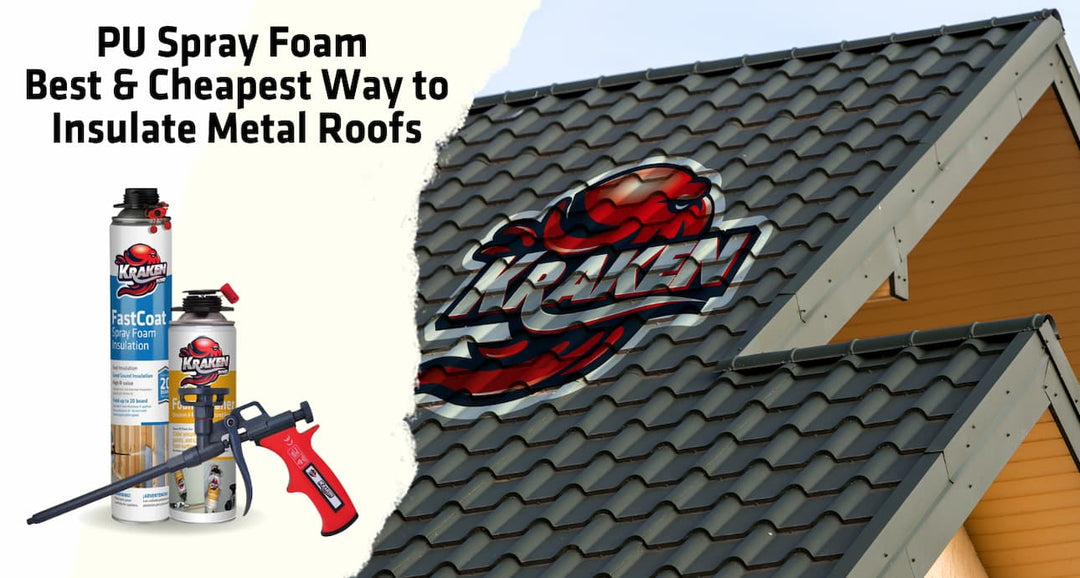

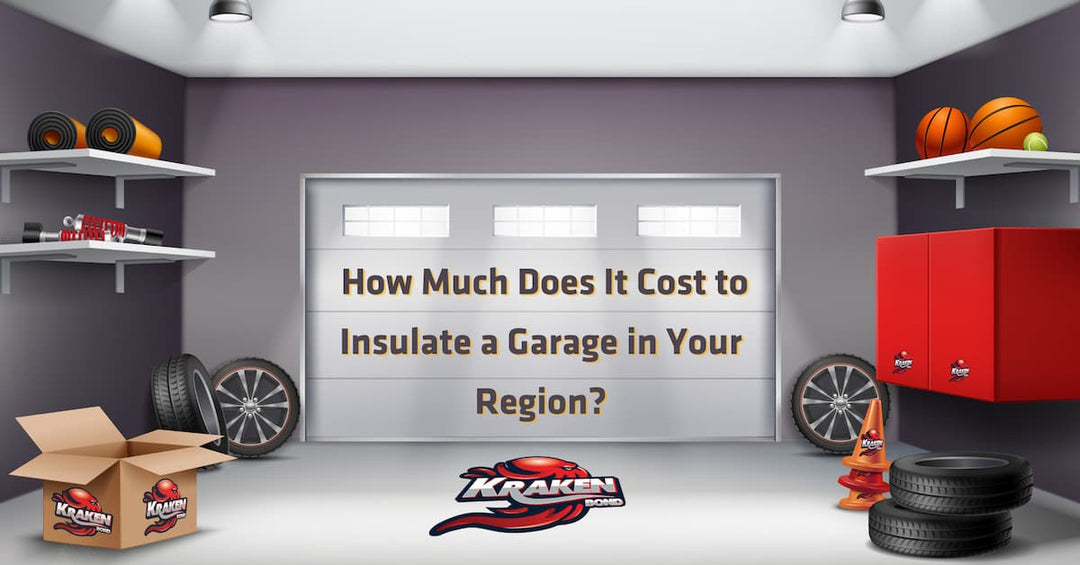


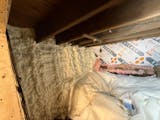

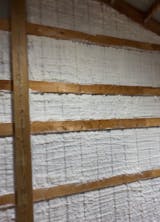
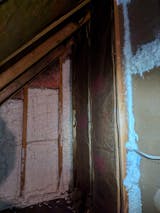
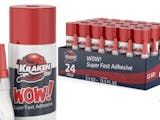





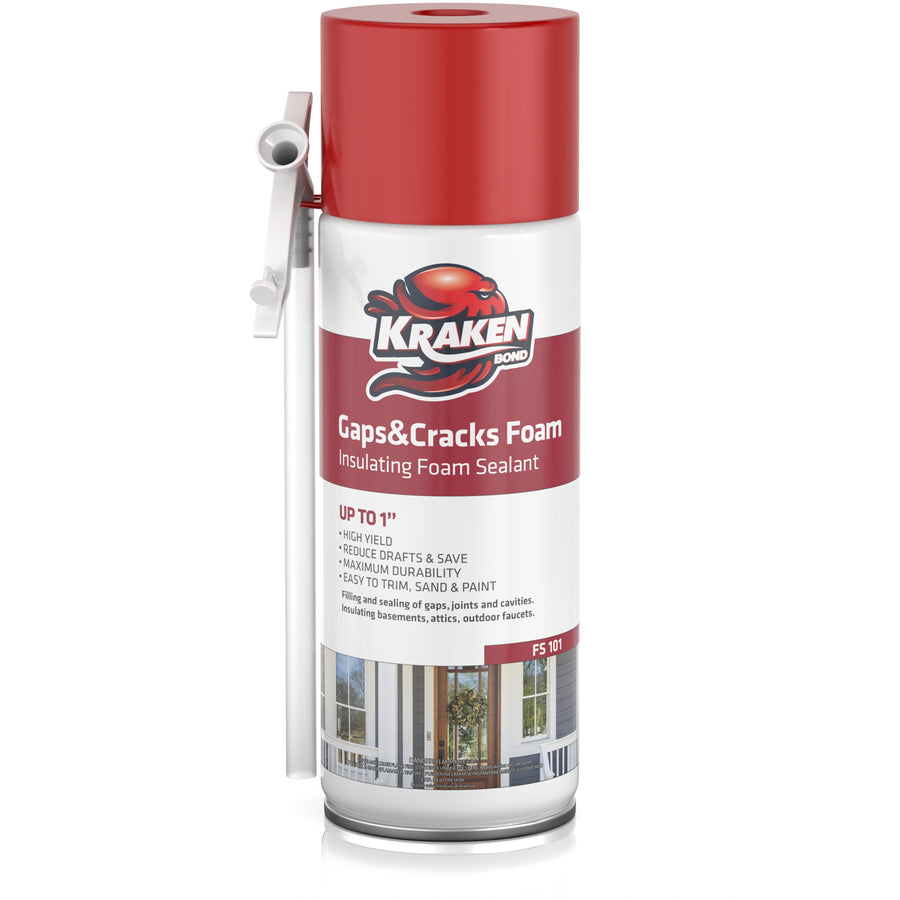
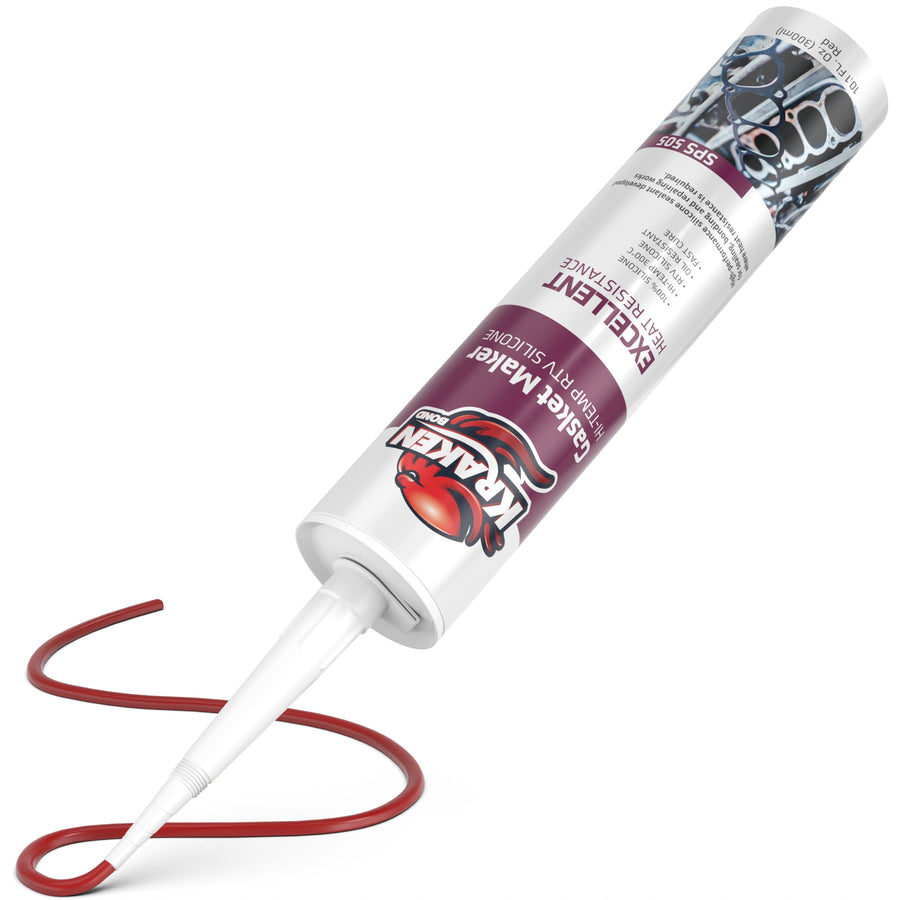
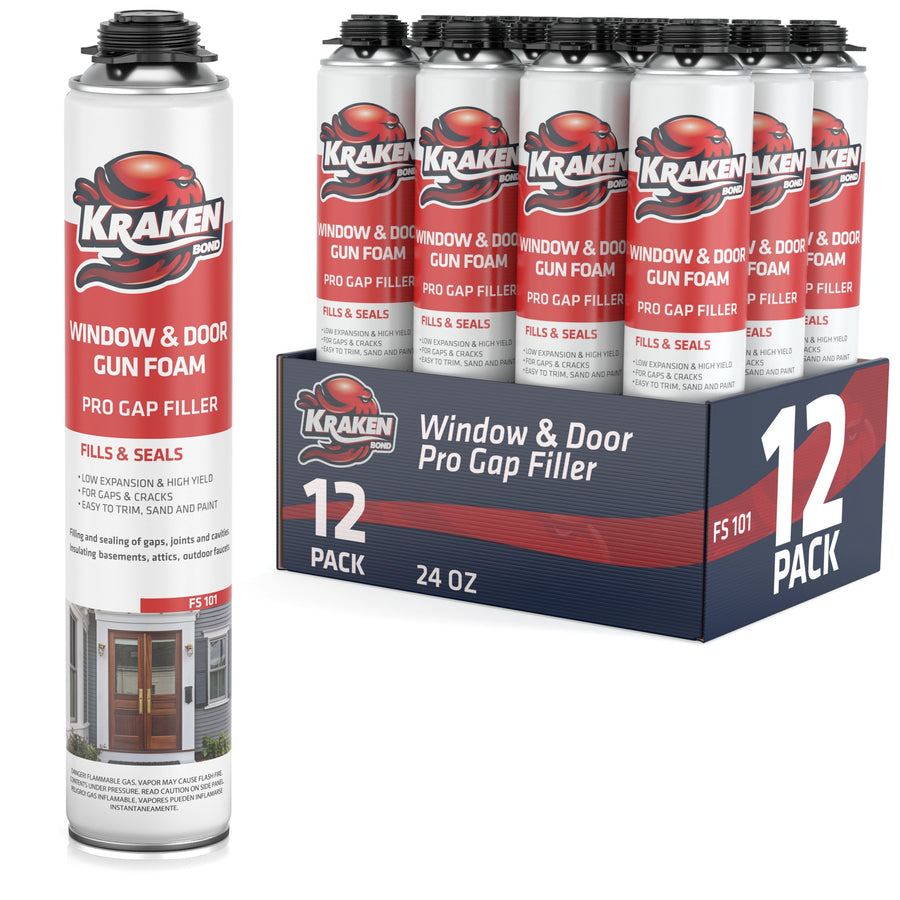
Leave a comment